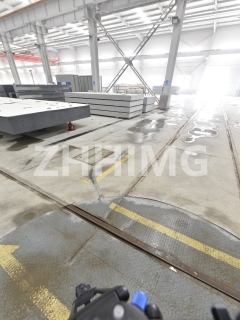Granite gas bearings are widely used in precision machining equipment and high-speed rotating machinery, thanks to their excellent mechanical properties, such as high stiffness, wear resistance, and stability. As a critical component in various applications, the accuracy and stability of granite gas bearings are of utmost importance for the performance and reliability of the entire system.
In this article, we will discuss several factors that can affect the accuracy and stability of granite gas bearings, as well as some strategies to ensure their high-quality performance.
1. Design and Manufacturing
The design and manufacturing of granite gas bearings play a crucial role in determining their accuracy and stability. In general, the bearing dimensions, tolerances, and surface quality should be precisely controlled to meet the required performance specifications. Moreover, the groove geometry and depth should also be optimized to ensure efficient gas flow and pressure distribution.
During the manufacturing process, it is essential to maintain a clean and temperature-controlled environment to prevent any contamination or thermal deformation that may affect the bearing's accuracy. Advanced machining techniques, such as diamond turning and Computer Numerical Control (CNC) machining, can also help to achieve high precision and consistency in the bearing's surface finish.
2. Gas Film
The gas film between the bearing and the shaft is the primary load-carrying medium in granite gas bearings. Therefore, the gas film's thickness and pressure distribution significantly affect the bearing's accuracy and stability.
To ensure the proper gas film thickness, the bearing's surface roughness and flatness should be carefully controlled during the manufacturing process. The gas pressure can be adjusted by regulating the gas flow rate and the inlet/outlet geometry. Advanced gas supply systems, such as microjets or perforated plates, can provide a uniform gas flow and pressure distribution, which enhances the bearing's accuracy and stability.
3. Operating Conditions
The accuracy and stability of granite gas bearings also depend on their operating conditions, such as speed, load, and temperature. Excessive radial or axial loads can cause deformation or wear on the bearing's surface, leading to reduced accuracy and stability over time. Similarly, high-speed operations can generate heat and vibration that may affect the gas film's thickness and pressure distribution.
To ensure the proper operating conditions, it is crucial to monitor the bearing's temperature, vibration, and other relevant parameters in real-time. Advanced sensors and control systems can provide real-time feedback and adjust the gas pressure and flow rate accordingly to maintain optimal operating conditions.
In conclusion, granite gas bearings are essential components in various high-precision applications. To ensure their accuracy and stability, it is crucial to design and manufacture them with high precision, maintain a uniform gas film thickness and pressure distribution, and closely monitor their operating conditions. With proper care and maintenance, granite gas bearings can provide reliable and efficient performance for years to come.
Post time: Mar-28-2024

